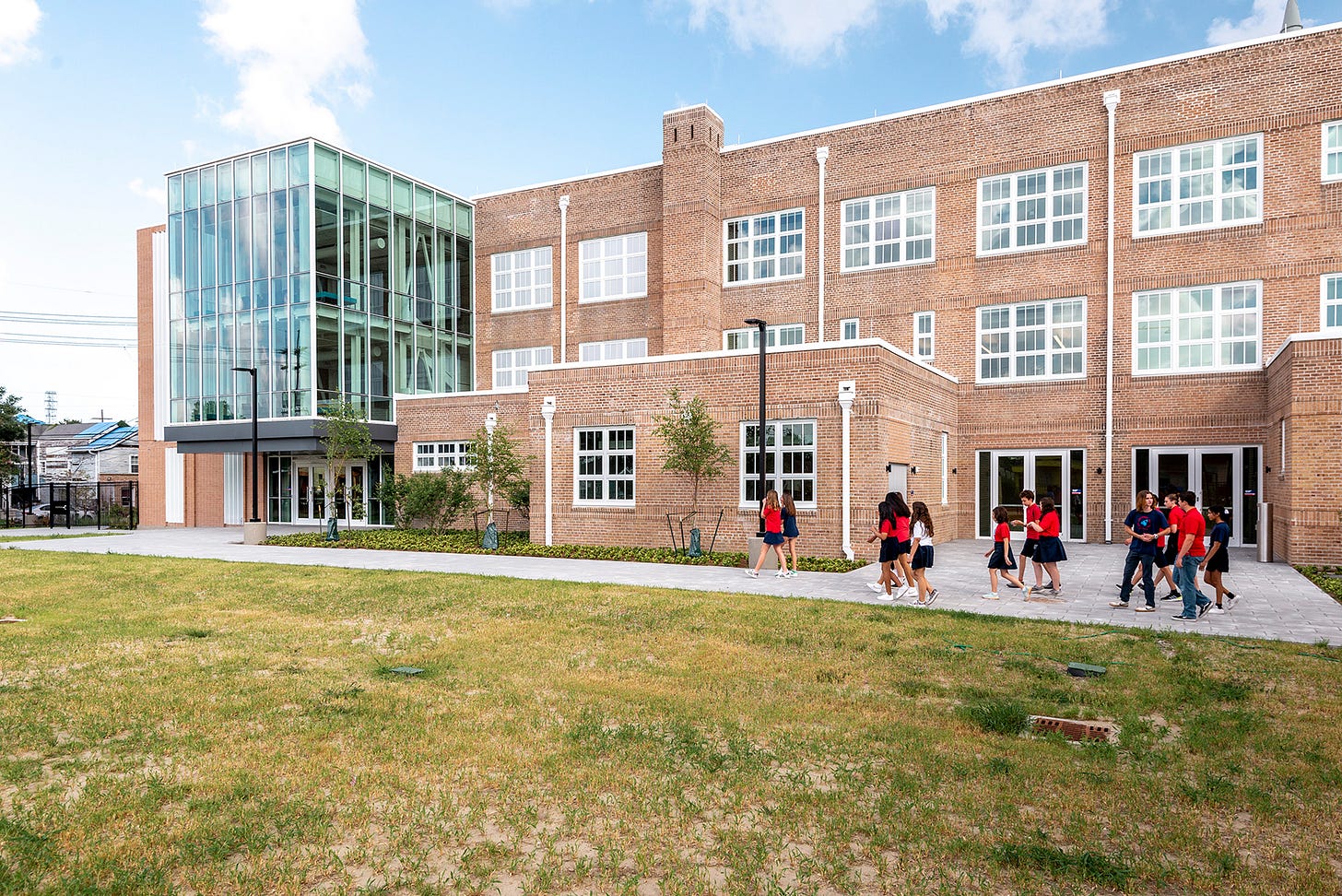04/02/2025: When Is a Charter School Public Enough to Evade NLRB Jurisdiction?
New Louisiana charter school law tests the boundaries of the public sector.
Lycée Français De La Nouvelle-Orléans, 15-RC-333858 (Regional Election Decision)
The Regional Director issued a decision on April 1, 2025, finding that Lycée Français de la Nouvelle-Orléans (LFNO), a French immersion charter school in New Orleans, is a political subdivision of the State of Louisiana and therefore exempt from the NLRB's jurisdiction.
The case arose after United Teachers of New Orleans, Local 527, won a representation election in May 2024. Shortly thereafter, on May 23, 2024, the Louisiana legislature passed Act 172, which amended state law to grant chartering authorities the power to reconstitute the governing bodies of charter schools under certain circumstances. LFNO subsequently challenged the NLRB's jurisdiction.
The sole issue before the Regional Director was whether LFNO qualified as a "political subdivision" under Section 2(2) of the National Labor Relations Act, which exempts state political subdivisions from the Board's jurisdiction.
The Regional Director applied the two-prong test established by the Supreme Court. Under this test, an entity is a political subdivision if it is: (1) created directly by the state as a department or administrative arm of government, or (2) administered by individuals who are responsible to public officials or to the general electorate.
Since LFNO was not directly created by the state but rather formed as a nonprofit corporation, the analysis focused on the second prong - whether LFNO is administered by individuals responsible to public officials.
The Regional Director determined that recent legislative changes were decisive. Act 172 grants the Louisiana Board of Elementary and Secondary Education (BESE), the charter authorizer, broad authority to reconstitute the charter school's governing body for various reasons, including:
Material violations of law relating to finances or student health, safety, or welfare
Failure to satisfy accountability provisions
Failure to meet accounting standards
Material violations of bylaws or nonprofit laws
Imminent insolvency
The Regional Director found this authority to be "broad and practically unreviewable," making it comparable to the Texas Education Code provision analyzed in the LTTS Charter School case, where the Board found a Texas charter school to be exempt from NLRB jurisdiction.
The Regional Director rejected the Petitioner's arguments that:
The Louisiana statute confers less authority than the Texas statute
The reconstitution power is merely theoretical
Implementation regulations weren't in place
Labor relations stability favored maintaining jurisdiction
The decision concluded that LFNO is administered by individuals who are responsible to public officials (BESE), satisfying the second prong of the political subdivision test and exempting LFNO from the Board's jurisdiction.
Significant Cases Cited
NLRB v. Natural Gas Utility District of Hawkins County, 402 U.S. 600 (1971): Established the two-prong test for determining whether an entity is a political subdivision exempt from NLRB jurisdiction.
Voices for International Business and Education, Inc., 905 F.3d 770 (5th Cir. 2018): Affirmed NLRB jurisdiction over Louisiana charter schools prior to Act 172, finding they were not administered by individuals responsible to public officials.
LTTS Charter Sch., Inc. d/b/a Universal Acad. & Kimberly Free, 366 NLRB No. 38 (2018): Found a Texas charter school to be a political subdivision due to a state agency's broad authority to reconstitute its governing board.
Hyde Leadership Charter School—Brooklyn, 364 NLRB No. 88 (2016): Found a New York charter school was not a political subdivision where public officials had only limited removal authority.
Pennsylvania Virtual Charter School, 364 NLRB No. 87 (2016): Held that a Pennsylvania charter school with a self-perpetuating board was not a political subdivision exempt from NLRB jurisdiction.
Comcast MO of Delaware LLC, 01-RC-347723 (Regional Election Decision)
The Regional Director directed an election for a petitioned-for unit of network maintenance technicians at Comcast's South Yarmouth, MA facility. The International Brotherhood of Electrical Workers, Local 2322 seeks to represent this unit. Comcast argued that the unit should also include installation & service technicians from the same location, asserting an overwhelming community of interest between the two groups.
The Regional Director found that Comcast failed to demonstrate an overwhelming community of interest between the network maintenance technicians and the installation & service technicians.
Applying the framework established in American Steel Construction, Inc., the Director determined that while the petitioned-for unit (network maintenance technicians) shared an internal community of interest and was readily identifiable, it was also sufficiently distinct from the installation & service technicians. The Director analyzed various community-of-interest factors, including organizational structure, distinct skills and training, distinct job functions, functional integration, frequency of contact, interchange, distinct terms and conditions of employment, and supervision. The Director determined that certain factors favored including the installation & service technicians in the petitioned-for bargaining unit, and certain factors weighed against including the installation & service technicians in the petitioned-for bargaining unit, but that overall Comcast failed to meet its burden of establishing that the installation & service technicians shared such an overwhelming community of interest with the petitioned-for network maintenance technicians that they must be included in the bargaining unit.
Significant Cases Cited
American Steel Construction, Inc., 372 NLRB No. 23 (2022): Overruled PCC Structurals and reinstated Specialty Healthcare's standard for determining appropriate bargaining units.
Specialty Healthcare & Rehabilitation Center of Mobile, 357 NLRB 934 (2011): Established the "overwhelming community of interest" standard for challenging petitioned-for units.
PCC Structurals, Inc., 365 NLRB No. 160 (2017): Previously overturned Specialty Healthcare but was itself overruled by American Steel Construction.
United Operations, Inc., 338 NLRB 123 (2002): Discussed community of interest factors in determining appropriate bargaining units.
Johnson Controls, Inc., 322 NLRB 669 (1996): Established that proposed units must not be "clearly arbitrary" with no coherent organizing principle.

